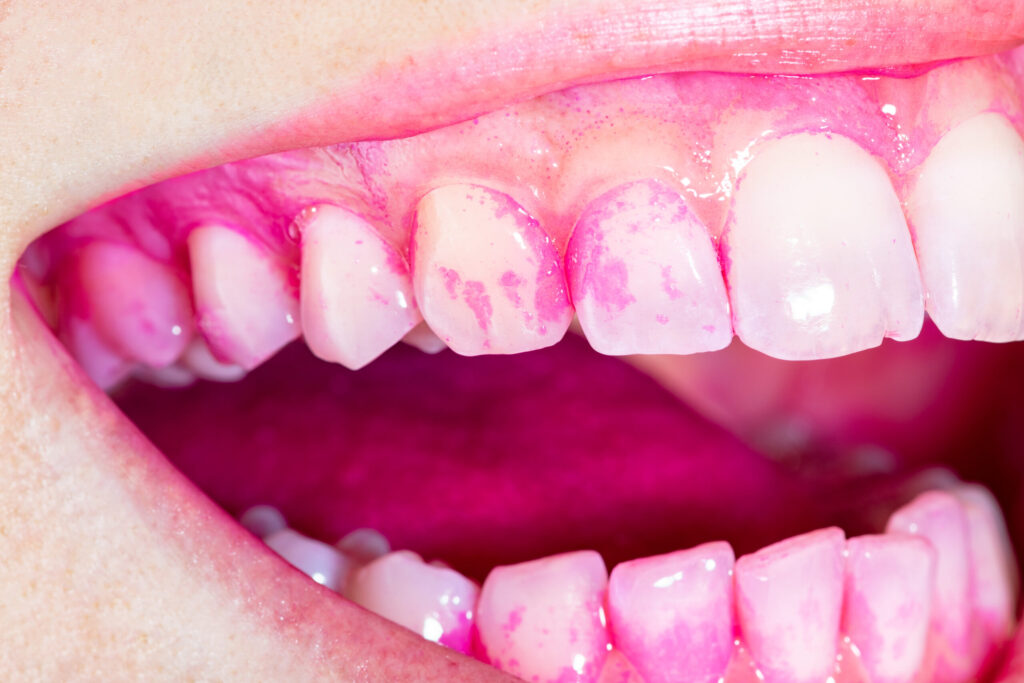Scripps West Dental knows that maintaining good oral hygiene is essential for a healthy smile, and sometimes, that means going beyond regular brushing and flossing. Deep cleaning, also known as scaling and root planing, is a common procedure used to treat gum disease and remove plaque and tartar from beneath the gum line. If you’ve recently undergone this treatment or are considering it, you might be wondering, “How long does it take for gums to heal after deep cleaning?” Let’s delve into the details to understand the healing process and what you can do to support your recovery.
Understanding Deep Cleaning: Scaling and Root Planing
Deep cleaning involves two main steps: scaling and root planing. Scaling removes plaque and tartar from the tooth surfaces and beneath the gum line. Root planing smooths out the roots of your teeth, helping your gums reattach to the teeth. A dental hygienist or dentist typically performs this procedure, and may be done in one or more visits, depending on the severity of your gum disease.
Immediate Post-Procedure Expectations
Immediately after a deep cleaning, it’s normal to experience some discomfort and sensitivity in your gums and teeth. Your gums may feel tender, swollen, or even bleed slightly. These symptoms are typically temporary and should begin to subside within a few days. To alleviate discomfort, your dentist might recommend over-the-counter pain relievers, such as ibuprofen, and suggest using a mouth rinse to reduce inflammation and promote healing.
The Healing Process: What to Expect
Days 1-3: Initial Recovery Phase
In the first few days following your deep cleaning, your gums will start healing. During this period:
● Tenderness and Sensitivity: Your gums and teeth may feel tender and sensitive. To minimize discomfort, avoid consuming extremely hot or cold foods and beverages.
● Swelling and Bleeding: Slight swelling and minor bleeding are common. Rinse your mouth with warm salt water to help reduce swelling and keep the area clean.
● Oral Hygiene: Continue brushing and flossing gently. Your dentist might recommend using a soft-bristled toothbrush and a desensitizing toothpaste to prevent irritation.
Days 4-7: Progressing Towards Healing
As you move into the second week, you should notice a significant reduction in symptoms. Your gums will start to feel less tender, and swelling should decrease. During this phase:
● Improved Comfort: Sensitivity and tenderness will continue to lessen. You can gradually reintroduce your regular diet but still avoid hard or crunchy foods.
● Better Oral Hygiene: Maintain a consistent oral hygiene routine. Use an antimicrobial mouthwash if recommended by your dentist to keep bacteria at bay.
Week 2 and Beyond: Full Recovery
Most of the initial discomfort should have subsided by the second week’s end. Your gums will continue to heal and reattach to your teeth, forming a tighter seal and reducing the depth of
periodontal pockets. In this stage:
● Minimal Discomfort: Any lingering sensitivity should be minimal. If you still experience significant pain or bleeding, contact your dentist for further evaluation.
● Regular Check-Ups: Schedule a follow-up visit with your dentist to assess your healing progress and ensure that your gums are reattaching properly.
● Long-Term Care: Adhere to a rigorous oral hygiene routine to prevent the recurrence of gum disease. This includes regular brushing, flossing, and professional cleanings.
Factors Influencing Healing Time
Several factors can influence how quickly your gums heal after deep cleaning:
● Severity of Gum Disease: Advanced periodontal disease may require more extensive cleaning, leading to a longer healing time.
● Oral Hygiene: Maintaining good oral hygiene practices post-procedure is crucial for optimal healing.
● Overall Health: Conditions such as diabetes and lifestyle factors like smoking can impede the healing process.
● Diet: A balanced diet rich in vitamins and minerals supports gum health and recovery.
Tips for Speeding Up Recovery
To promote faster healing and ensure the best possible outcome, follow these tips:
● Follow Post-Procedure Instructions: Adhere to any guidelines provided by your dentist, including medication recommendations and dietary restrictions.
● Maintain Oral Hygiene: Brush and floss regularly, using gentle techniques to avoid irritating your gums.
● Stay Hydrated: Drink plenty of water to keep your mouth clean and hydrated.
● Avoid Tobacco: Smoking can delay healing and exacerbate gum disease, so it’s best to avoid tobacco products altogether.
● Eat a Nutritious Diet: To support gum health, incorporate foods rich in vitamins C and D, calcium, and antioxidants.
When to Contact Your Dentist
While mild discomfort and sensitivity are normal after deep cleaning, certain symptoms may indicate complications that require prompt dental attention. Contact your dentist if you experience:
● Severe Pain: Persistent or intense pain that doesn’t improve with over-the-counter pain relievers.
● Excessive Bleeding: Continuous or heavy bleeding that doesn’t subside after a few days.
● Signs of Infection: Symptoms such as pus, severe swelling, or fever may indicate an infection.
● Receding Gums: Significant gum recession or exposure of tooth roots that wasn’t present before the procedure.
A Healthier Smile Awaits
Healing after a deep cleaning is a gradual process, but with proper care and attention, your gums will recover and contribute to a healthier, more radiant smile. Remember, consistent care and regular dental visits are key to maintaining optimal oral health. At Scripps West Dental in Mira Mesa, CA, we’re dedicated to helping you achieve and maintain excellent oral health. If you have any concerns or questions about your recovery, don’t hesitate to reach out to our experienced team.
Ready to Take the Next Step?
If you’re considering a deep cleaning or need a follow-up appointment, contact Scripps West Dental today. Our skilled dental professionals are here to provide personalized care and support your journey to optimal oral health. Call us at 858-695-1776 or visit our website to schedule your appointment. Your smile deserves the best care; we’re here to deliver it!

